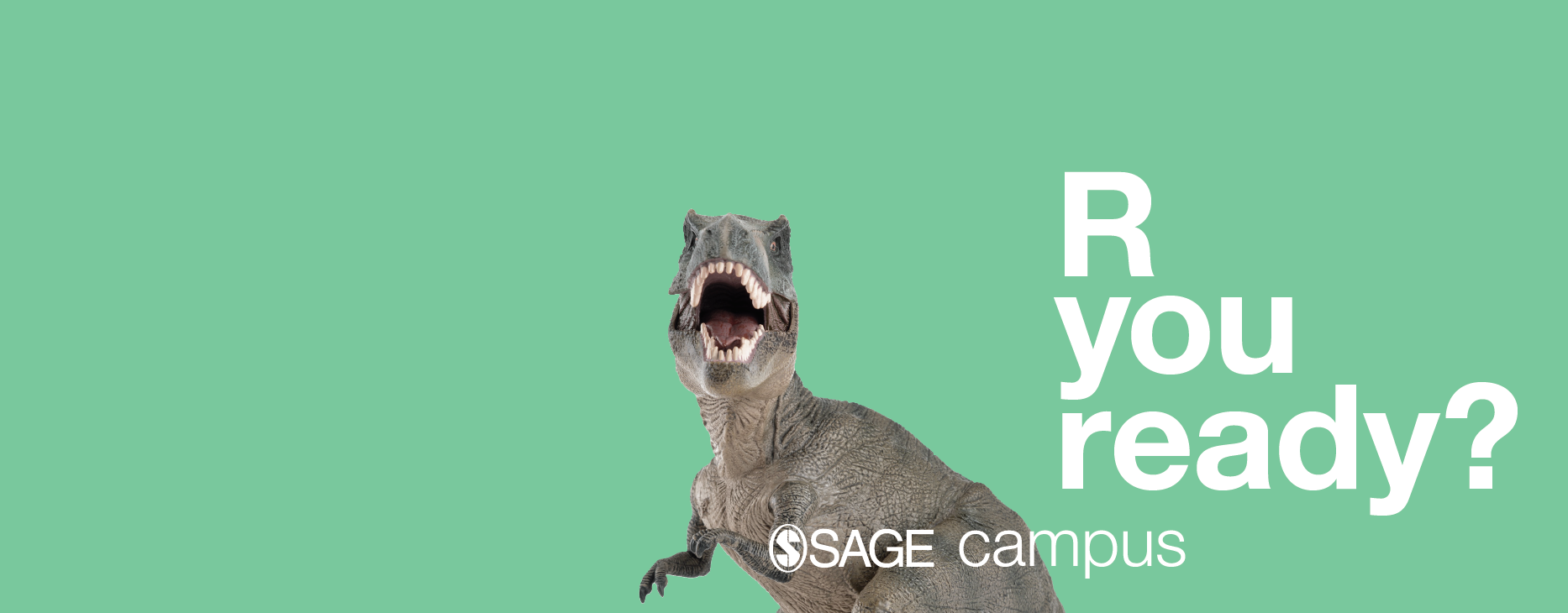Watch the recording of our webinar on Top Tips for Switching to Teaching Online, with Dr Tom Chatfield and Elspeth Timmans, who created our SAGE Campus Critical Thinking online course. Tom and Elspeth also answer questions they did not have time to answer in the webinar in this blog.
By Jae Yeon Kim, computational social scientist and PhD candidate in Political Science at UC Berkeley, writes this guest blog on getting undergraduates involved in real-life data science projects; connecting them with community impact groups, entrepreneurship ventures, and educational initiatives to provide them with hands-on and team-based research opportunities outside the classroom.
Creating good content is an age old challenge for educators. And this challenge is only exasperated when the content you’re creating is online. Last month, we published a guest blog by Tom Chatfield on lessons he learned when creating Critical Thinking: An Online Course. In this blog, we expand on Tom’s lessons from our perspective as editors of SAGE Campus online courses.
Watch the free 1 hour webinar recording by Dr Taha Yasseri of the Oxford Internet Institute to learn about the role of natural experiments in social data science and see his answers to your questions.
What do the most useful online resources look like and do? This has become a more urgent question than anyone dreamed even a few months ago. Tom Chatfield shares tips on creating good online learning from his experience creating the SAGE Campus course Critical Thinking: An online course.
In response to the COVID-19 outbreak, many universities around the world are having to switch to online teaching and remote learning at scale and at speed. A wealth of digital resources exist that can support this sudden shift to online but knowing what ‘good’ online learning looks like has never been easy. This shares five lessons we’ve learned from working with universities about what worked for them, and what sometimes surprised them about student engagement.
Earlier this year, Professor Giuseppe A. Veltri, Associate Professor at the University of Trento, used two SAGE Campus online courses to both refresh and expand the skills of his Masters students. Giuseppe described his experience of using the courses and the motivations behind his decision.
Our Critical Thinking online course teaches students practical techniques for confident discerning of critical engagement with sources, evidence, arguments and reasoning. Find out what students at the University of Salford thought of the course and download the infographic of their feedback.
Dr John McLevey, Associate Professor at the University of Waterloo in Canada, used SAGE Campus’ Introduction to Python for Social Scientists online course with his graduate students. Read our case study to see feedback from John and his students about why SAGE Campus was a good fit.
Technology and digitization are changing the world we live in and, consequently, what skills are required from our future workforce. It is becoming increasingly important for social science graduates to be data literate to be employable and successful. So, what exactly does the future social science graduate look like and what must institutions do to ensure their students excel?
The University of Mannheim used SAGE Campus’ Introduction to R for Social Scientists online course to prepare students with the required R programming skills ahead of their IPSDS course. Read about their experience in this case study.
Higher education institutions traditionally used SPSS when teaching social science. But there’s a shift toward R; a programming language and free software environment for statistical computing and graphics. Find out the top reasons why your institution should switch to R.
In addition to SAGE Campus online data science courses for social scientists, SAGE are launching another online course - this time on critical thinking, by Tom Chatfield. Find out more…
What is social data science and how is it done? Taha Yasseri, course instructor on the SAGE Campus Research Design in Social Data Science online course, explains the big data-driven approach to social science research that everyone is talking about.
SAGE Campus are soon launching two brand new online data science courses for social scientists; Research Design in Social Data Science and Collecting Social Media Data. Register your interest for the courses today to get 25% off when they launch this summer.
Dr. Maja Založnik, Research Fellow at the Oxford Institute of Population Ageing, answers questions from SAGE Campus’ recent free Introduction to R webinar about the R programming language.
Guest blog from Matt Denny, Research Scientist at Facebook Core Data Science, on the benefits of learning data science as a social scientist. Get started in data science with SAGE Campus’ Practical Data Management with R online course, authored by Matt.
The majority of social scientists and social researchers report that they want or need to learn data science skills, according to a recent survey by SAGE Campus. What does this mean for higher education institutions?
Learn the basics of the R programming language in this free introductory webinar recording, by Dr. Maja Založnik, Research Fellow at the Oxford Institute of Population Ageing. Free webinar, intro to R.
To accompany the launch of our new course on November 26, Introduction to Text Mining for Social Scientists we’ve put together this handy video collection with SAGE Campus course instructor Gabe Ignatow. We’ve broken them down into useful sections to help give you a quick overview of Text Mining; we hope you find them useful. Sign up now for Introduction to Text Mining for Social Scientists.





















